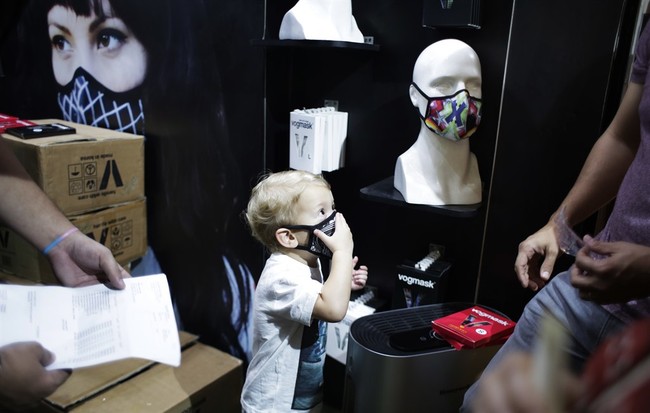Top News
The ‘COVID-Cautious’ Feel Abandoned

Do you ever find yourself feeling wistful and looking back fondly to the days when everyone was forced to wear facemasks, practice social distancing, and carry around proof of vaccination? No? Me neither. But believe it or not, there are people who do feel that way. Time Magazine refers to them as the “COVID-cautious,” and they feel abandoned by the rest of us and by the government as well. Despite the vastly lower number of reported infections and the thankfully even smaller number who still die from the disease, there are clearly some Americans who are displaying what seems to be a persistent level of paranoia about the virus. Time interviewed one person who only wanted to be identified as “Alex,” who says that he’s lost faith in the government and in medical institutions.
For all of 2020, Alex, a 28-year-old living in New York, followed the U.S. Centers for Disease Control and Prevention’s (CDC) COVID-19 guidance “religiously.” Then, in 2021, something began to shift. That spring, the CDC said it was okay for vaccinated people to ditch their masks in most places. But people were clearly still getting sick—including Alex, who got COVID-19 for the first time in late 2021 and later developed Long COVID symptoms.
“There was this reckoning moment where it was like, ‘Maybe the CDC is not being totally honest with us about the situation,’” he says. “‘Maybe they’re trying to present it like we can go back to normal when we can’t.’”
For Alex, who asked to use only his first name to protect his privacy, that feeling has only deepened. The virus killed roughly 1,000 people in the U.S. during the week ending March 2 and has left about 7% of U.S. adults with Long COVID—but despite its continuing toll, real-time data on infections are limited, most mask mandates are gone, and isolation guidance has been scaled back.
Perhaps someone else can explain why people like “Alex” feel “abandoned.” Abandoned by whom, exactly? Nobody outlawed facemasks if you want to wear one. (Though we probably should because so many criminals wear them, along with pro-Hamas protesters who don’t want their pictures published.) The government isn’t telling anyone that they can’t practice social distancing. Be our guest. Many of us probably don’t want to stand that close to you anyway. And you can still get as many vaccines as you like if you think it helps.
With all of that said, we’ve learned a lot over the past few years and none of it reflects well on the government or the healthcare industry. Test after test has shown that cloth masks don’t do a thing to protect people and even surgical masks don’t really help unless they are worn correctly and constantly. Social distancing proved to have no impact on transmission when dealing with an airborne virus. And the experimental mRNA vaccines were unable to prevent either infection or transmission. Living your life in fear and continuing ineffective practices sounds like a recipe for angst and depression if you ask me.
One concept where many of us will likely agree with Alex is that a lot of people have lost faith in the overall competence of the government and the medical establishment, though perhaps for different reasons. The impact of the lockdowns and the intentional implosion of the economy have been disastrous. The decision to close the schools turned out to be catastrophic. The government’s efforts to “combat vaccine hesitancy” have reportedly produced even more suspicion about all vaccines, not just the COVID shots.
The CDC still hasn’t taken full accountability for all of this. They are pulling back most of the mandates, but they say that’s because nearly all of the country has at least some level of COVID immunity at this point. (Raise your hand if you remember when you could be kicked off of social media for saying “herd immunity.”) CDC Director Dr. Mandy Cohen told Time Magazine this month that we are “out of the emergency phase.” That’s nice to hear. But where were you back in the early days when highly qualified immunologists were trying to explain that COVID was never as big of an emergency as we were being told? At this point, it sounds like we’re dealing with a crisis of confidence that was driven by a crisis of incompetence. Let’s make sure we don’t repeat those mistakes when the next pandemic comes around, shall we?
Read the full article here


















